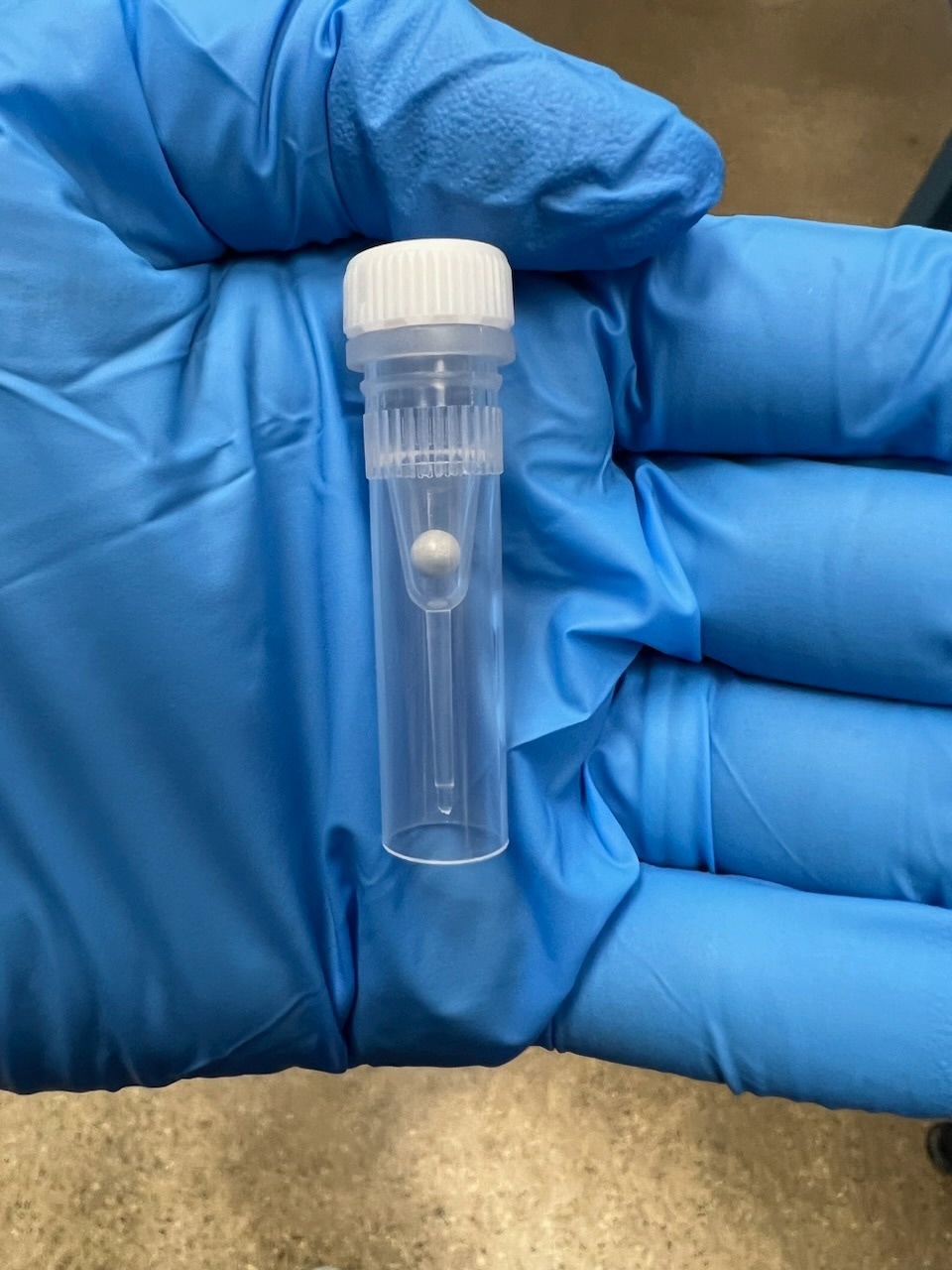Tuberculosis testing and treatment needs to happen close to the point of infection. PBD Biotech has developed a lyophilized PCR reaction bead for its Actiphage® blood test for active TB. This enables ambient shipping without the need for a cold chain, which reduces the cost of shipment and extends the shelf-life for components of the test.
 PBD Biotech’s lyophilized PCR reaction bead for its Actiphage® blood test for active TB. Image Credit: PBD Biotech
PBD Biotech’s lyophilized PCR reaction bead for its Actiphage® blood test for active TB. Image Credit: PBD Biotech
Products that contain enzymes are temperature-sensitive and require cold chain transport to ensure their functional integrity. Lyophilization is a water removal process that can be used to extend shelf-life.
Although lyophilized products for drugs and food aren’t unusual, using this technology for a PCR product is novel. It is expensive and time consuming to re-develop the product in a lyophilised format and to ensure that sensitivity and specificity aren’t compromised.
PBD has addressed this pain early doors to ensure the product aligns with the WHO Target Product Profile (TPP) and allows an extension of shelf-life, which is always good for the customer.”
Joely Irlam, Chief Technology Officer, PBD Biotech.
PBD has developed PCR primers and probes that allow specific detection of DNA lysed from Mycobacteria tuberculosis (Mtb) isolated from a human whole blood sample. The beads will contain polymerase enzyme, UNG enzyme to prevent contamination, dNTPs, oligonucleotide primers and probes and PCR additives.
Joely continues: “The PCR has also been specially developed to target multiple sites within the relevant insertion elements in the MTBC rather than just one. This is a unique feature and improves the test’s ability to detect Mtb at levels much lower than previously achieved.
“The new bead offers easy ambient shipping. Cold chain transport can limit the distance and/or time a sample can be in transit without guaranteed replenishment, so the bead will extend the global reach of Actiphage.”
By enabling early detection of TB disease progression, Actiphage has the potential to break the cycle of infection – offering an exciting contribution to the WHO #EndTB initiative.
Jane Theaker, CEO of PBD Biotech, says that the early testing and treatment of patients who have the infection and are likely to progress to active disease before they pass on their infection is an important pillar of the #EndTB campaign, but there are other areas where Actiphage can also provide support.
She says: “Actiphage could also be used to enable the stratification of patients for new TB drugs and vaccine therapies in clinical trials. In this way, the effectiveness of treatments can be assessed much more efficiently, leading to improved targeted drugs and vaccines.
“Antimicrobial resistance is a growing concern for the treatment of TB. Actiphage could be used to monitor the effectiveness of drug treatments, ensuring that, once the infection is cleared from the blood, the drug treatment can be stopped. In this way the potential for antimicrobial resistance can be minimised. This safeguards drug treatments for future use in TB patients.”